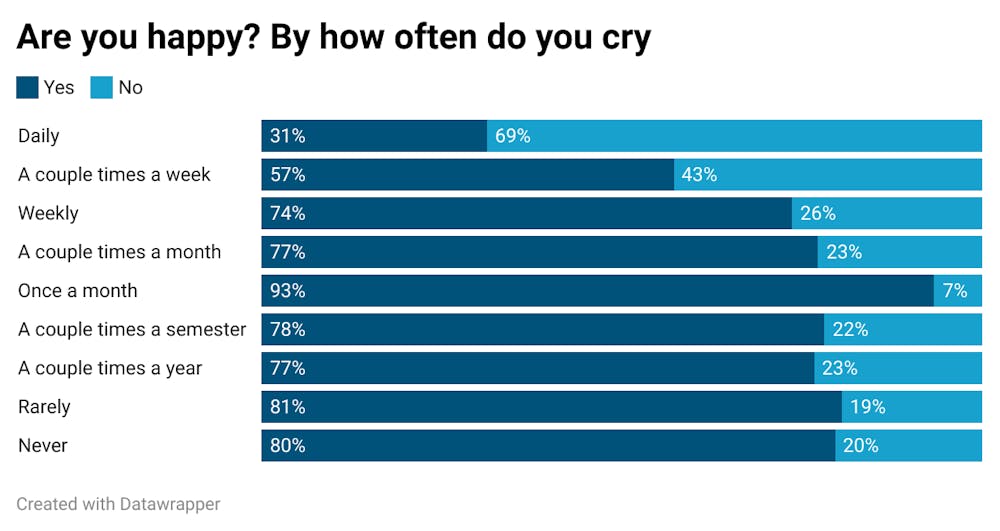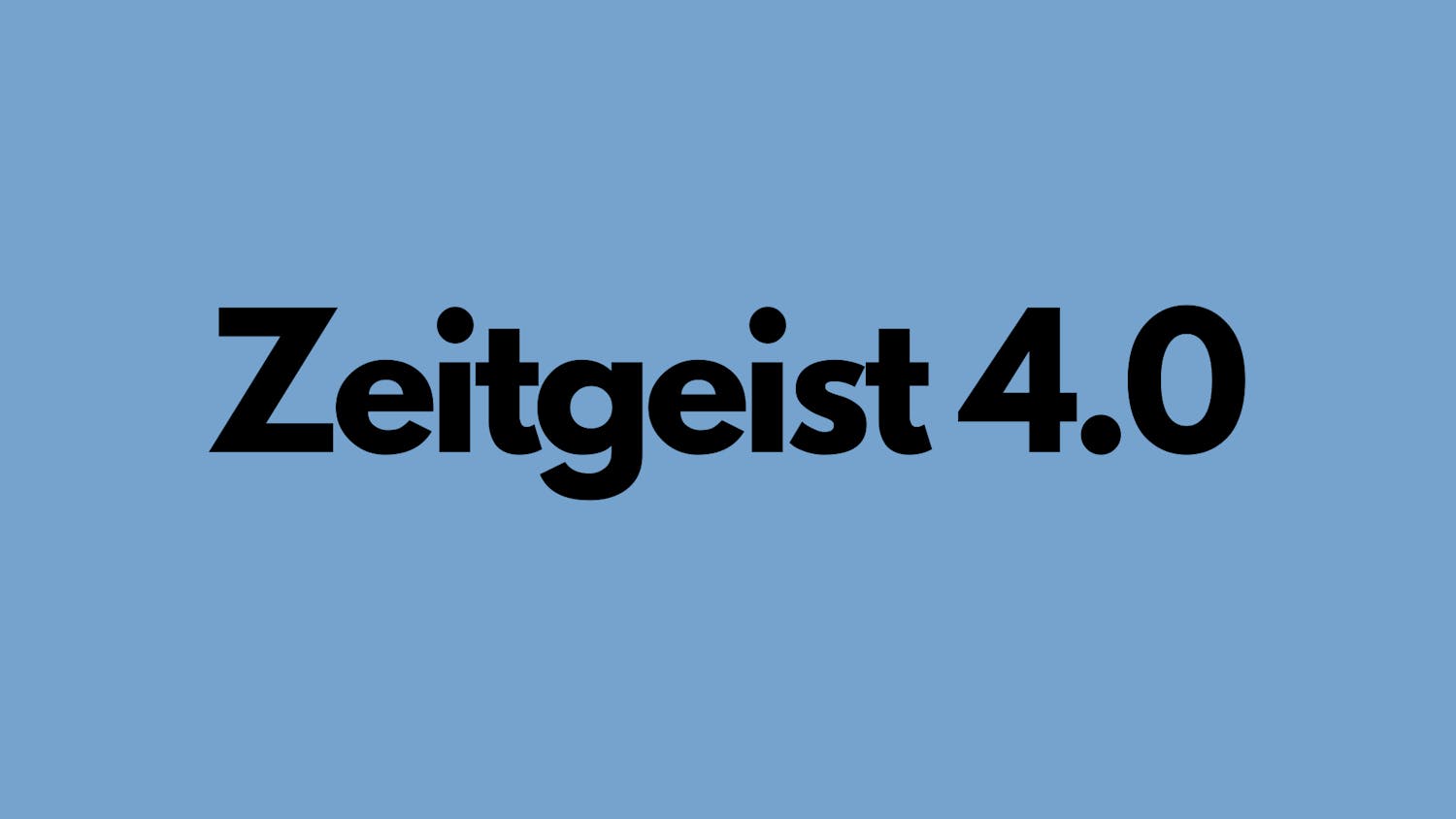Around the midway point of the 2022 Zeitgeist survey, our 1,134 respondents encountered a rather blunt question: “Are you happy?”, with only “yes” or “no” answer options. While we acknowledge how this binary greatly oversimplifies this inquiry, we were curious as to how Middlebury students would opt to characterize their happiness when confronted with only two choices.
In the end, 75% of students who took our survey answered yes, and 25% answered no. We as a board are hesitant to label this as a “good” metric — though these numbers make us seem like a relatively content student body, they also suggest one in four students in any given room are “unhappy.”
The distribution of these feelings is not even across all demographics. Respondents that said they are white —with a 78% “yes” rate — were at least 10 percentage points happier than students that selected any other racial or ethnic identity.
Students on financial aid also cited lower happiness numbers, with 69% of respondents answering “yes” compared to 80% of student respondents not receiving financial aid. This brings up questions about whose well-being at Middlebury is valued and supported and who has a more straightforward path to feeling as though they belong here.
While one’s personal happiness is incredibly intimate and often invisible, it is also apparent through this data how privilege and access can play a role in how members of our community define how they’re feeling. Although we often think of college as a place where everyone comes to build their own social and support networks from scratch, this playing field is rarely level. Ultimately, we must consider who has a relatively easy time finding happiness here and who has to consistently fight for it.
Our data also shows that there is a slight general upward trend from students’ first years to final semesters. (It gets better)! It’s possible that the longer students are at Middlebury, the more comfortable and satisfied they feel as access to opportunities increases and social groups are strengthened.
We can also consider that many of the “yes” answers are relative — students may be more likely to state they are happy in comparison to the last two years. Even if students are having a hard time now, they may still reflect on their current feelings positively compared to the height of the Covid-19 pandemic. Being happier than you were “before” may or may not correlate with authentic and palpable happiness.
However, students in their written answers — included as part of the wrap-up portion of the survey — generally appear to feel more settled and confident. Multiple respondents note that their mental health has improved, while others express newfound feelings of patience, satisfaction, independence and gratitude. “I feel like I've become comfortable with who I am in a way I haven't really experienced before” one student writes. Another notes that they are “focusing on myself and making decisions that are in the interest of my own happiness.”
Nevertheless, it is clear that these feelings of increased happiness and self-assurance are not evenly experienced. If there’s anything we can take away from this question and its results, it’s evident how happiness, or lack thereof, is intertwined with pre-existing inequities.
We definitely don’t claim to have answers to happiness, nor have we tried to find them. But, we do have one data point that might provide one: 93% of respondents who reported crying once a month — a more resounding percentage than found in any other category — said that they were happy. Perhaps a once-a-month cry is a healthy outlet after all.




